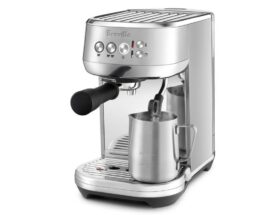
How Many Cups of Coffee a Day Can You Drink?
Coffee is undeniably one of the most popular beverages in the world. Whether it’s the aroma of a fresh brew in the morning, the camaraderie of sipping a cup with friends, or the comforting warmth it brings on a chilly afternoon, coffee has become an integral part of our daily routines. But the question remains: how many cups of coffee a day can we safely consume?
For some, a single cup in the morning is enough to kickstart the day, while others rely on multiple cups throughout the day to stay alert and focused. Coffee consumption patterns can vary significantly depending on factors such as personal preference, lifestyle, and tolerance to caffeine. Understanding the effects of coffee on our sleep, health, and overall well-being is essential in finding the optimal balance.
Table of Contents
- Coffee Consumption Patterns: Exploring the Daily Ritual
- Frequently Asked Questions
- 1. How many cups of coffee per day is considered a healthy amount?
- 2. Does coffee consumption patterns vary among different countries?
- 3. What are the effects of coffee on sleep?
- 4. How does coffee impact overall health?
- 5. What is the optimal coffee intake for maximizing its benefits?
- 6. What are the different types of coffee?
- 7. Which brewing method produces the best coffee?
- 8. Is there a specific time of day that is best for coffee consumption?
- 9. How can we balance the benefits and risks of coffee consumption?
- 10. What are some strategies to manage caffeine dependence?
- 11. What are the common coffee withdrawal symptoms?
- Wrap Up
Coffee Consumption Patterns: Exploring the Daily Ritual
For many of us, the day doesn’t truly begin until we’ve had our first cup of coffee. Whether it’s the aroma, the taste, or the caffeine boost, coffee holds a special place in our daily routines. But how many cups of coffee should we be drinking each day?
Understanding Optimal Coffee Intake
The optimal number of cups of coffee per day can vary depending on several factors, including individual tolerance to caffeine, overall health, and lifestyle. While some people can handle multiple cups without any adverse effects, others may experience discomfort or sleep disturbances even with just one cup. It’s essential to assess your own body’s response and find the right balance.
The Effects of Coffee on Sleep
One crucial aspect to consider when determining your coffee intake is the impact on sleep quality. Caffeine, the key stimulant in coffee, can disrupt your sleep patterns, making it harder to fall asleep and affecting the overall quality of your rest. It’s generally recommended to avoid consuming coffee at least six hours before bedtime to allow your body enough time to metabolize the caffeine.
Exploring the Health Benefits of Coffee
Coffee has long been a topic of scientific study, and research suggests that moderate coffee consumption can offer several health benefits. From boosting cognitive function to reducing the risk of certain diseases like Parkinson’s and liver cancer, coffee has been shown to provide an array of positive effects. However, it’s crucial to remember that moderation is key, and excessive caffeine intake can lead to negative consequences.
Types of Coffee and Brewing Methods
Not all coffee is created equal, and there are numerous types and brewing methods to choose from. From the richness of a French press to the smoothness of pour-over, each technique brings its unique flavors and aromas. Experimenting with different coffee varieties and brewing styles can add further complexity and enjoyment to your coffee experience.
Strategies for Managing Caffeine Dependence
While moderate coffee consumption is generally considered safe and enjoyable, some of us may develop a dependence on caffeine. If you find yourself relying heavily on coffee to function or experiencing withdrawal symptoms when attempting to cut back, it may be time to reassess your caffeine consumption. Gradually reducing your intake, replacing coffee with other beverages, or opting for decaffeinated alternatives can help you manage your caffeine dependence effectively.
As you journey through your coffee choices, prioritize quality over quantity. Experiment with consumption times that align with your energy levels, and consider both the benefits and potential risks of coffee.
Finding Balance: Making Informed Coffee Choices
Ultimately, finding the right number of cups of coffee per day is a personal journey. Evaluating your tolerance, considering the impact on sleep, and balancing the benefits and risks of coffee consumption are essential steps in making informed choices about your daily coffee intake. Remember that it’s not just about the quantity but the quality of your coffee moments, so take the time to savor each sip and appreciate the ritual.
- Coffee Consumption Times: Experiment with different times of the day to find when coffee best fits your schedule and energy levels.
- Balancing Coffee Benefits and Risks: Stay aware of the potential benefits and risks of coffee consumption while finding a balance that works for you.
- Managing Caffeine Dependence: Implement strategies to curtail reliance on caffeine and minimize withdrawal symptoms.
- Coffee Withdrawal Symptoms: Learn about common withdrawal symptoms and how to manage them when reducing caffeine intake.
By understanding your body, exploring different brewing methods, and staying attuned to your own coffee preferences, you can navigate the world of coffee consumption and achieve a harmonious relationship with your beloved brew.
Frequently Asked Questions
1. How many cups of coffee per day is considered a healthy amount?
A healthy amount of coffee consumption varies from person to person. According to most experts, moderate coffee intake is generally safe, which is about 3-4 cups per day for most individuals.
2. Does coffee consumption patterns vary among different countries?
Absolutely! Coffee consumption patterns vary widely among different countries. Some cultures prefer lighter coffee with higher consumption throughout the day, while others opt for stronger espresso shots in the morning.
3. What are the effects of coffee on sleep?
Caffeine, the main active ingredient in coffee, can interfere with sleep. Consuming coffee too close to bedtime or in excessive amounts may lead to difficulty falling asleep or disrupted sleep. It is recommended to limit coffee intake in the late afternoon and evening.
4. How does coffee impact overall health?
Coffee has been associated with several health benefits, such as improved cognitive function, increased alertness, and a reduced risk of certain diseases like type 2 diabetes and Parkinson’s disease. However, excessive coffee consumption may have adverse effects on health, such as increased heart rate and gastrointestinal issues.
5. What is the optimal coffee intake for maximizing its benefits?
The optimal coffee intake varies depending on individual tolerance and sensitivity to caffeine. For most people, consuming 2-3 cups of coffee per day can provide the desired benefits without going overboard. It’s important to listen to your body and adjust your intake accordingly.
6. What are the different types of coffee?
There are various types of coffee, including espresso, cappuccino, latte, americano, and cold brew. Each type has its own unique flavor profile and preparation method, catering to different preferences.
7. Which brewing method produces the best coffee?
The best brewing method is subjective and depends on personal taste preferences. Some popular brewing methods include drip brewing, French press, pour-over, and espresso machines. Experimenting with different methods can help you find your favorite.
8. Is there a specific time of day that is best for coffee consumption?
The ideal time for coffee consumption varies from person to person. Many people enjoy a cup of coffee in the morning to kickstart their day. However, some individuals may find it more beneficial to have their coffee later in the day to combat the afternoon slump.
9. How can we balance the benefits and risks of coffee consumption?
It’s important to strike a balance between the benefits and risks of coffee consumption. Moderation is key. Pay attention to your body’s response to coffee and adjust your intake accordingly. Additionally, a varied and balanced diet overall plays a crucial role in maintaining good health.
10. What are some strategies to manage caffeine dependence?
To manage caffeine dependence, gradually reducing coffee intake or opting for decaffeinated alternatives can be helpful. It’s also important to prioritize adequate sleep, maintain a healthy lifestyle, and seek support or guidance if you feel your caffeine consumption is becoming problematic.
11. What are the common coffee withdrawal symptoms?
Coffee withdrawal symptoms can include headaches, fatigue, irritability, difficulty concentrating, and mood swings. These symptoms are usually temporary and subside within a few days. Staying hydrated and getting enough rest can alleviate the discomfort during this phase.
To prevent caffeine dependence, introduce gradual changes to your routine while being aware of withdrawal symptoms. By striking this balance, you'll not only enjoy your coffee but also nurture a mindful and rewarding coffee experience.
Wrap Up
Congratulations! You have embarked on a journey to demystify the age-old question: How many cups of coffee a day are just right? Through exploring coffee consumption patterns, understanding the effects of coffee on sleep, delving into the balance between coffee benefits and risks, and discovering various types and brewing methods, you have equipped yourself with valuable knowledge to make informed coffee choices.
Remember, optimal coffee intake varies from person to person, depending on factors such as tolerance, health conditions, and personal preferences. It is recommended to limit your daily caffeine intake to around 400 mg, which is approximately four cups of brewed coffee.
Managing caffeine dependence and minimizing potential withdrawal symptoms can be challenging but achievable. Gradually reducing your caffeine intake, finding alternative sources of energy, and practicing self-care strategies such as staying hydrated and getting enough rest can greatly help in curbing reliance on coffee.
We hope this blog has empowered you to strike a harmonious balance in your coffee consumption. Remember, moderation is key, and it’s essential to listen to your body and make choices that align with your overall well-being.
We would love to hear about your coffee journey and any additional questions or experiences you may have. Leave a comment below, and don’t forget to share this blog with your fellow coffee enthusiasts!









